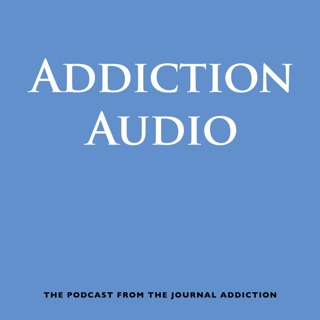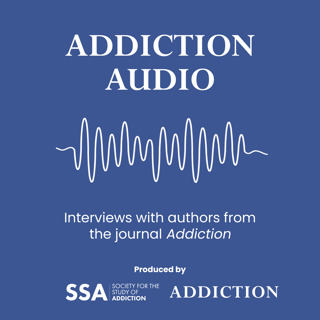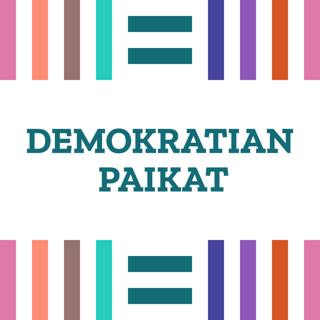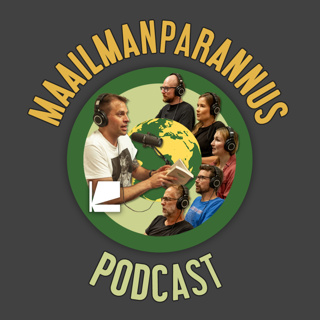
Pre-registration with John Marsden
In this episode of Addiction Audio, Professor John Marsden talks about the role of pre-registration in increasing research transparency. He addresses the anxieties that people can have about pre-registration and talks about how it’s really not that difficult or daunting.Professor Marsden talks gets into the detail of pre-registration; when to register, how to register and the importance of planning for – and dealing with – missing data. He covers how plans change during any research project and how to respond when they do. The importance of pre-registration also includes qualitative research and Professor Marsden talks about the need for more qualitative and observational studies to be pre-registered.“We’re really trying to encourage people to just plan, adapt if you need to, change if you have to – but just have a clear narrative about that – and everyone benefits. It means that what was done is much more reproducible.”Professor John Marsden is the Editor-in-Chief of the journal Addiction. He is Professor of Addiction psychology at the Addictions Department, the Institute of Psychiatry, Psychology and Neuroscience, Kings College London.Marsden, J, Cousijn, J and Stapleton, J, Pre‐registration: not a daunting practice. Addiction. 2022. https://doi.org/10.1111/add.15819 Hosted on Acast. See acast.com/privacy for more information.
16 Maalis 202229min

ADHD and maternal substance use with Elis Haan
Dr Elis Haan talks to Dr Rob Calder about ADHD and maternal substance use. She discusses her recent paper which explored the impact of smoking, alcohol and drugs during pregnancy on ADHD outcomes in young people.Elis talks about the differences between maternal and teacher ratings of ADHD. She also explains negative control and polygenic risk score methods used in this study discussing how multiple methods were used across different longitudinal datasets to add confidence to their analysis. “Combining these different methods can help to gain stronger support for a causal effect…. For example, if these different methods and analyses across these cohorts provide similar results we can be more confident that the results reflect a true causal effect. This is because it is unlikely that these different methods will be all biased in the same way”Haan E, Sallis HM, Zuccolo L,Labrecque J, Ystrom E, Reichborn-Kjennerud T, et al. Prenatal smoking, alcohol and caffeine exposure and maternal-reported attention deficit hyperactivity disorder symptoms in childhood: triangulation of evidence using negative control and polygenic risk score analyses. Addiction. 2021;1–14. https://doi.org/10.1111/add.15746. Hosted on Acast. See acast.com/privacy for more information.
28 Helmi 202217min

JITAIs and using smartphones to prevent lapse with Olga Perskie
Rob Calder talks to Dr Olga Perski about her recent research on just-in-time adaptive interventions (JITAIs) whereby smartphones are used to help prevent lapses among people who are trying to quit or reduce alcohol, tobacco or other drug use. Dr Perski talks about why the literature is so complex and how defining JITAIs is difficult in the first place. She talks about the potential for Ecological Momentary Assessment (EMA), GPS positioning and micro-randomised trial studies to contribute in this area, and how we may not want to press ahead with full-scale RCTs before having conducted additional conceptual and computational work to clarify what JITAIs are and how to develop them. Dr Perski also discusses the challenges of regulating mobile health apps so that people can access apps based on evidence of effectiveness. This episode was recorded online on 30 September 2021.Perski, O., Hébert, E.T., Naughton, F., Hekler, E.B., Brown, J. and Businelle, M.S. Technology‐mediated just‐in‐time adaptive interventions (JITAIs) to reduce harmful substance use: A systematic review. Addiction 2021; doi:10.1111/add.15687 Hosted on Acast. See acast.com/privacy for more information.
27 Loka 202130min

Mental imagery and cocaine craving with John Marsden
Rob Calder talks to Professor John Marsden about cocaine cravings. Professor Marsden discusses the lack of pharmacological treatments for cocaine, and about his recent study using mental imagery to address cocaine cravings. He talks about the benefits of positive imagery compared with negative imagery. He then discusses how useful mixed-methods research can be and the importance of writing up data from unfinished trials. Lowry, N., Marsden, J., Clydesdale, B., Eastwood, B., Havelka, E.M. and Goetz, C. Acute impact of self‐guided mental imagery on craving in cocaine use disorder: a mixed‐methods analysis of a randomized controlled trial. Addiction 2021; doi:10.1111/add.15405https://onlinelibrary.wiley.com/doi/full/10.1111/add.15405 Hosted on Acast. See acast.com/privacy for more information.
20 Loka 202131min

Drug treatment commissioning and market mechanisms with Alison Ritter
Professor Alison Ritter talks about her recent paper “Are market mechanisms associated with alcohol and other drug treatment outcomes” and about the Australian context of drug treatment provision and commissioning. We discuss the challenges of measuring outcomes against commissioning structures and Professor Ritter explains how funding arrangements can end up looking like a bowl of spaghetti. Alison discusses why governments don’t necessarily have to tender competitively, about the burdens associated with the machinery of recommissioning and about the potential for fixed-price tendering to improve the quality of addiction treatment services.Ritter, A., van de Ven, K., Vuong, T., Chalmers, J., Dobbins, T., Livingston, M. and Berends, L. Are market mechanisms associated with alcohol and other drug treatment outcomes?. Addiction 2021; doi:10.1111/add.15681 https://onlinelibrary.wiley.com/doi/10.1111/add.15681 Hosted on Acast. See acast.com/privacy for more information.
15 Loka 202122min

The Paper Authoring Tool (PAT) with Robert West
Rob Calder talks to Professor Robert West about the Paper Authoring Tool (PAT). Professor West talks about how PAT can be used in the design and write-up phases of a randomised controlled trials, about how it saves time for reviewers and journals and about how using the PAT can make your research more rigorous, well reported and discoverable. He also discusses the future of research publishing and how computer reading can save months or years on evidence synthesis and how this relates to the Human Behaviour Change Project. There is also a small section on the interaction between computers, humans and chess.West, R. PAT: an on‐line paper authoring tool for writing up randomized controlled trials. Addiction 2021; 116: 1938-1940paperauthoringtool.com Hosted on Acast. See acast.com/privacy for more information.
14 Syys 202127min

Cannabis, opioids and the gateway hypothesis with Jack Wilson
Jack Wilson talks to Rob Calder about his recent systematic review and meta-analysis on whether cannabis use increases the likelihood of later life opioid use or opioid use disorders. Jack talks about the limitations of the literature, the influence that the gateway hypothesis has had on policy and on some of the different types of studies that explore this issue. Wilson J, Mills K, Freeman TP, Sunderland M, Visontay R, and Marel C. Weeding out the truth: a systematic review and meta-analysis on the transition from cannabis use to opioid use and opioid use disorders, abuse or dependence. Addiction 2021; doi:10.1111/add.15581 https://onlinelibrary.wiley.com/doi/abs/10.1111/add.15581 Hosted on Acast. See acast.com/privacy for more information.
15 Heinä 202116min

Cannabis, schizophrenia and genetics with Emma Johnson
Dr Emma Johnson talks to Rob Calder about shared genetic liabilities for cannabis use disorder and schizophrenia and the role of tobacco smoking. Dr Johnson talks about the implications of this research on the evidence for a causal relationship between cannabis and schizophrenia and for other genetic associations relating to substance use and psychiatric disorders. The episode also covers to ever-fascinating issue of mendelian randomisation. (Be sure to check out episode 22 too!)Johnson E.C., Hatoum A.S., Deak J.D., Polimanti R, Murray R.M., Edenberg H.J., et al. The relationship between cannabis and schizophrenia: a genetically informed perspective. Addiction 2021 https://doi.org/10.1111/add.15534 Hosted on Acast. See acast.com/privacy for more information.
14 Kesä 202116min



















